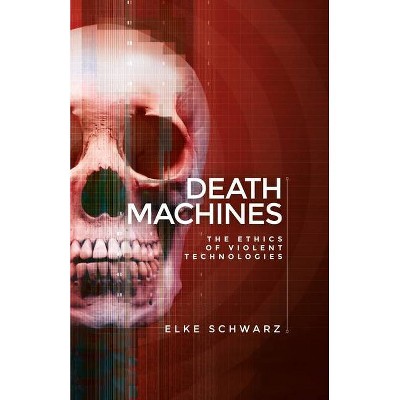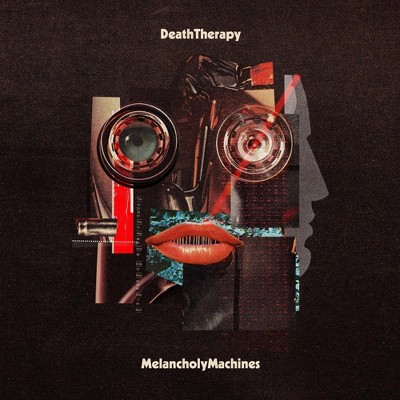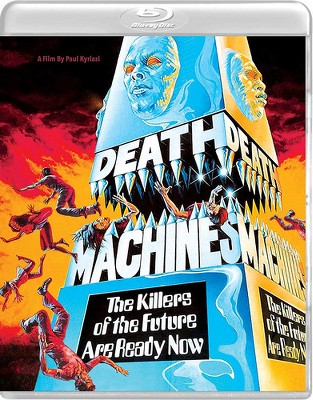Death machines - by Elke Schwarz (Paperback)

Similar Products
Products of same category from the store
AllProduct info
<p/><br></br><p><b> About the Book </b></p></br></br><i>Death Machines </i>offers a critical reconsideration of ethical theories and political justifications for technologised practices of violence in contemporary conflicts.<p/><br></br><p><b> Book Synopsis </b></p></br></br><p>As innovations in military technologies race toward ever-greater levels of automation and autonomy, debates over the ethics of violent technologies tread water. <em>Death Machines</em> reframes these debates, arguing that the way we conceive of the ethics of contemporary warfare is itself imbued with a set of bio-technological rationalities that work as limits. The task for critical thought must therefore be to unpack, engage, and challenge these limits. Drawing on the work of Hannah Arendt, the book offers a close reading of the technology-biopolitics-complex that informs and produces contemporary subjectivities, highlighting the perilous implications this has for how we think about the ethics of political violence, both now and in the future.</p><p/><br></br><p><b> From the Back Cover </b></p></br></br>'Schwarz pulls no punches. This is a brilliantly written and well-crafted work that will change the way you think about armed conflict.' Noel Sharkey, Emeritus Professor of AI and Robotics, University of Sheffield and Chair of the International Committee for Robot Arms Control 'Essential reading for scholars across the fields of (critical) war studies, political theory and political philosophy.' <i>International Affairs</i> 'Schwarz's account is compelling - a fascinating, must-read book.' C J Brown, Emeritus Professor of International Relations at the London School of Economics and Political Science 'Brings some much-needed philosophical depth to the debate. Elke Schwarz shows how our dependence on technology limits our room for action.' Peter Olsthoorn, Associate Professor Military Leadership and Ethics, Netherlands Defence Academy 'Remarkable. Elke Schwarz investigates the terms of the debate concerning lethal autonomous weapons. ... The best defence is a killer critique.' David J. Gunkel, Distinguished Teaching Professor, Northern Illinois University Are lethal drones the most moral and effective tools to combat terrorism? Could killer robots take lives more ethically than humans? Discussion of these issues often ends up conflating efficiency with morality and legality with ethics. This book raises urgent questions about what is at work in the relationship between lethal technologies, their uses and the ethical justifications for technologically enabled political violence. It explores what allows us to think of instruments for killing as inherently ethical, what socio-political rationale underpins these processes, and what kind of ethical framework for violence such a socio-political context produces. <i>Death Machines</i> redefines the debate, arguing that the way we conceive of the ethics of contemporary warfare is itself imbued with a set of bio-technological rationalities that work as limits. We must unpack, engage and challenge these limits. Drawing on the work of Hannah Arendt, the book offers a close reading of the technology-biopolitics complex that informs and produces contemporary subjectivities, highlighting the grave implications this has for how we think about the ethics of political violence, both now and in the future.<p/><br></br><p><b> Review Quotes </b></p></br></br><br>'Schwarz pulls no punches in her epic journey through the technologies of violence. This is a brilliantly written and well-crafted work that will change the way you think about armed conflict.' Noel Sharkey, Emeritus Professor of AI and Robotics, University of Sheffield and Chair of the International Committee for Robot Arms Control '<i>Death Machines</i> brings some much-needed philosophical depth to the debate on armed drones. Drawing on authors such as Hannah Arendt and Michel Foucault, Elke Schwarz shows how our dependence on technology limits our room for action. Schwarz rightly questions the idea that ethics is a body of fixed rules and precepts already out there, and investigates how the use of armed drones shapes our moral thinking.' Peter Olsthoorn, Associate Professor Military Leadership and Ethics, Netherlands Defence Academy 'In this remarkable new book, Elke Schwarz investigates the terms of the debate concerning lethal autonomous weapons, providing us with an illuminating critique of the biopolitical and technological rationalities that organise, inform, and justify the existing arguments both for and against killer robots. The best defence is a killer critique.' David J. Gunkel, Distinguished Teaching Professor, Northern Illinois University '<i>Death Machines </i>combines a thoughtful account of Hannah Arendt as a guide to biopolitics and violence with a critique of algorithmic approaches to ethics, and an up-to-the-moment reading of the contemporary state of the art with respect to AI, Drones and Autonomous Weapons Systems. Schwarz's account is compelling -a fascinating, must-read book.' C J Brown, Emeritus Professor of International Relations at the London School of Economics and Political Science 'Essential reading for those working with or on the issue of drones, autonomy and AI to engage with the ever-increasing use of violent technologies, regarding both the physical death they inflict and the ethical death in the wake of their use.' Joanna Frew, Drone Wars UK 'Schwarz's book should be essential reading for scholars across the fields of (critical) war studies, political theory and political philosophy. Furthermore, the extensive discussion of Arendt's biopolitics will appeal to Arendtian scholars and scholars of biopolitics more widely.' <i>International Affairs</i><br><p/><br></br><p><b> About the Author </b></p></br></br><br><strong>Elke Schwarz</strong> is Lecturer in International Politics at the University of Leicester<br>
Price History
Price Archive shows prices from various stores, lets you see history and find the cheapest. There is no actual sale on the website. For all support, inquiry and suggestion messagescommunication@pricearchive.us




















